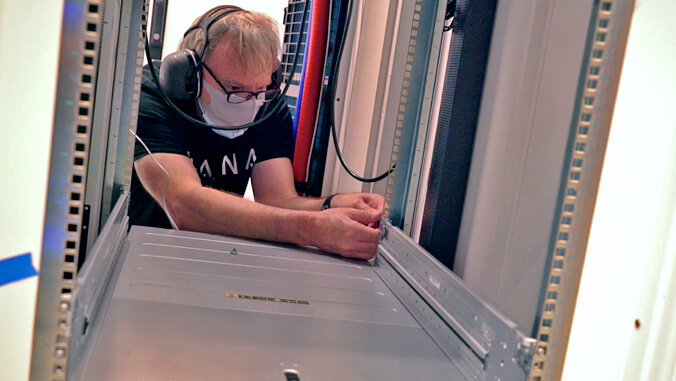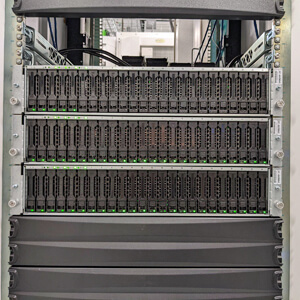
Researchers across the 10-campus University of Hawaiʻi system will be able to process larger datasets and models and accelerate existing workflows with a new intercampus data-storage platform called KoaStore. The platform is being established with a $500,000 National Science Foundation grant.
“KoaStore will help support and power UH investigators’ research through its high-performance, large size and fast connection to the rest of the world. Further, KoaStore will help enable analysis of data at a scale not previously possible on the Mana high performance computing cluster, allowing larger simulations and discovery,” said Sean Cleveland, principal investigator and associate director of cyberinfrastructure at UH Information Technology Services.
KoaStore will be integrated into the UH high performance computing cluster Mana and focus on supporting research in the areas of astronomy, atmospheric science, climate science, microbiome and computer and data science.
Serving national and local research

The new platform will also serve the national research community through partnership with the Open Science Data Federation, leveraging existing UH, Pacific region and national high-speed research networks. This partnership federates national computing resources to offer high-speed storage and shorter wait-times on shared compute resources for UH researchers.
“The public datasets hosted on KoaStore will make it possible for researchers in Hawaiʻi, across the nation and around the world to use astronomy data produced by the UH Institute for Astronomy (IfA),” said Curt Dodds, IT manager at IfA and KoaStore co-investigator. “We plan to share data from cosmological simulations, a dynamic database of the entire night sky, and machine learning models of the Sun’s atmosphere and distant galaxies.”
Data from the Stereographically Projected Cosmological Simulations, also known as StePS, a novel astrophysics simulation method, are an example of public datasets available for download through KoaStore.
KoaStore will be integrated with the NSF Jetstream2 cloud computing infrastructure and allow researchers to easily span cloud computing environments to support new deep learning and artificial intelligence workflows, visualization and applications.
Additionally, the platform will aid hands-on training in data and computational science for the next generation of researchers and data scientists through a partnership with the Hawaiʻi Data Science Institute and local community to provide workshops and classroom access.

